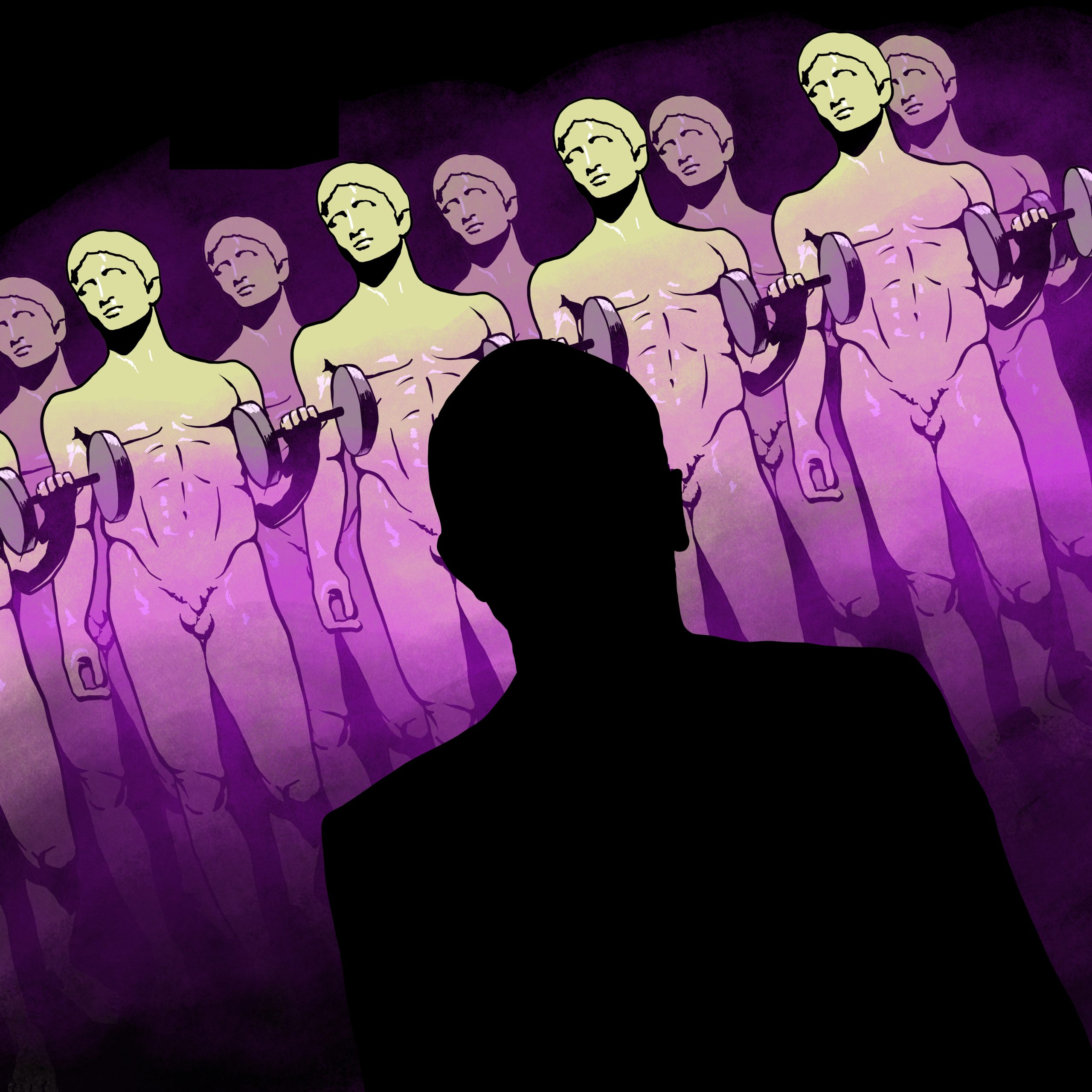
In 2021, around two thirds of Canadians had gym memberships. The third who didn’t presumably were doing Chloe Ting’s month-long YouTube workout regimens. Meanwhile, internet body-building personalities like Jeff Nippard are animating pictures of their bulbous pecks to slide up graphs, and nobody is trying to stop them. We fawn over fitness.
Fitness culture and fatphobia are fascistic fads, although their fans feign them as the favoured formulae for fleeing our mind worlds towards a flab-free one. Fitness influencers are basically peddling Nazism.
Imagining fascists, people likely think of goose-stepping Germans. Nazis are scary, but the SS’s marching chokehold on the public’s imagination when we broach the subject of fascism leaves the vast majority of us ill-equipped to identify fascistic tendencies elsewhere.
Nazis propagandized fitness as Germans’ duty to the nation. This was highly compatible with other parts of the Nazi project, namely to manufacture a homogenous Aryan population and erase all bodies that did not match their ideal. These are heinous strains of logic which have been exported from fascist movements and sewn into the fabric of public life.
The fascistic part of fitness culture is the way it frames exercise as a moral lifestyle that we should all — every single one of us — aspire to. The Centers for Disease Control and Prevention suggests that the reasons why you want to lose weight might include wanting to “see your kids get married” and this can be attained by organizing one’s entire lifestyle around weight loss.
Missing a workout in these circles is tantamount to failing not just yourself, but everyone around you. You’re letting your future child down on their future wedding day by eating fries and skipping chest day this week. If you slip up and miss a workout, fit-fluencers will tell you it’s okay, all you have to do is just not do that very often. Consistency is key.
Prof. Brian Pronger points out that almost everything that we stress about physical education centres around maximizing the body’s performance. It’s the way that we are all expected to structure our lives around our fitness regimens, and those five days a week when we’re supposed to work out must be in service to making ourselves as strong as possible.
Fitness fanaticism constipates our personal growth. Think about what it means to “work on yourself.” It often means to work out, as if your character is tied to your physical strength and muscle tone.
Where improving your self probably ought to mean expanding your empathetic range, exposing yourself to new people and ideas, learning new skills and strengthening your moral codes, the fascistic undercurrents of fitness culture teach us to moralize our bodies.
For philosopher Walter Benjamin, fascism introduces aesthetics into politics. That is, good politics for fascists are an aesthetic. Fitness is an aesthetic that gives us information to judge people with.
Being fit is good and legible. We see a six pack or ski-slope traps and we are supposed to know a person has worked on themselves. Whereas fat people must be read as either earlier in their journey to self-improvement or contemptible because they refuse to do it.
Many of us have motivations to exercise irrespective of our bodies’ appearances. I do yoga because my joints are falling apart from my sedentary lifestyle, and I go on runs when I need to escape the horrifying maw of my mind. Human life has always involved joyful movement. Dance and sports exemplify the ways exercise keeps human culture moving.
It’s not the concept of exercise that is fascistic, though. Pronger explains that physical education’s one-note emphasis on performance could not capture the “infinity” and joyfulness he feels while swimming. It’s the cultural phenomenon of lifestyle fitness that’s objectionable, demanding everyone to prove their allegiance to the perfect body type through a constant and lifelong regimentation.
Fitness culture saps the joy from movement, encouraging us to spend around five days a week alone at exercise machines moving for the sake of our shapes. North America’s fitness frenzy stunned French philosopher Jean Beaudrillard, recalling what he saw apocalyptically. “Nothing evokes the end of the world more than a man running straight ahead on a beach,” he wrote. Joggers especially freaked him out, but he thought of body-builders too as living in a “blank solitude.”
What ultimately reeks of fascism to me is the way fitness culture is advertised as the key to disappearing fat bodies. Fear of fatness is at once a disgust for certain types of bodies and a way of reminding everyone what they exercise for. You work out so you never become like the fat people who are content being that way. The veneration of fitness is the worship of sameness, the celebration of the absence of variations in humans’ physical forms.
The next time you’re binging YouTube videos of bulky boys blending boiled unseasoned chicken breast into an abominable muscle growth potion, take a pause. Is doing deadlifts appealing because they might make you look like Joey Swoll after a pump, or is it because you’re afraid of what will happen to you if you don’t look like him?
